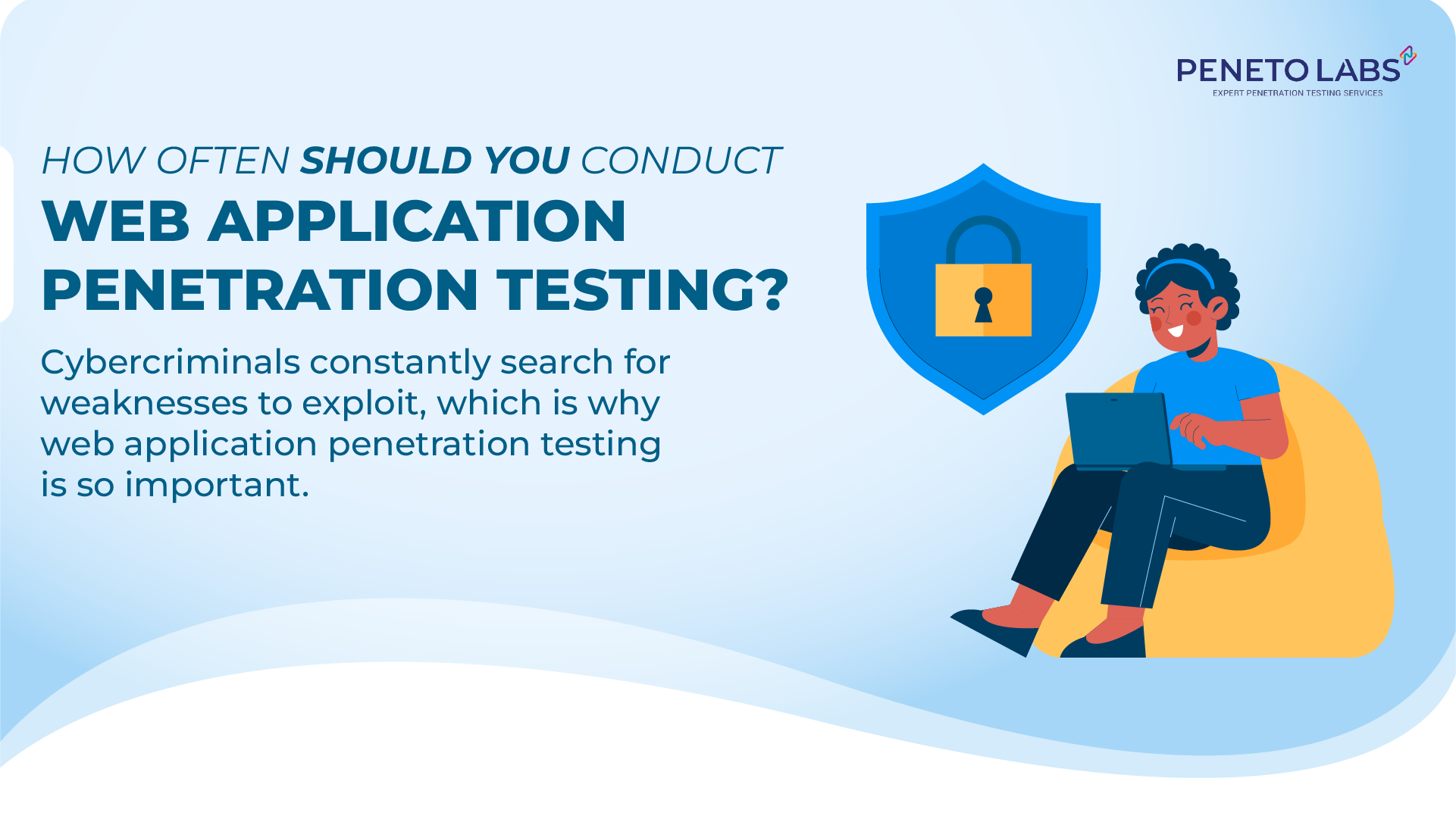Web applications run everything, from banking to shopping, healthcare, and travel bookings. But with convenience comes constant risk. Cybercriminals constantly search for weaknesses to exploit, which is why web application penetration testing is so important. The real question most businesses ask is: How often should you conduct web application penetration testing? Let’s understand in this article.
Why Frequency Matters in Web Application Penetration Testing?
Cybersecurity threats are not static. New vulnerabilities appear almost every week. If you test your web application once and forget it, chances are you’ll miss out on new risks that attackers already know about. Regular web application penetration testing ensures your application stays safe against evolving threats.
When to Conduct Web Application Penetration Testing?
Here are the key times you should schedule penetration testing:
1. Before Every Major Release
Whenever you add new features, integrations, or update your backend systems, fresh vulnerabilities may creep in. A test before release ensures your users stay safe.
2. After Critical Security Patches
Even a small update can break existing security controls. Post-patch penetration testing validates that your fix doesn’t introduce new risks.
3. After Infrastructure Changes
Migrating to the clouds? Adding a new payment gateway? Integrating with third-party APIs? Each change opens new doors for attackers, and penetration testing helps close them.
4. At Least Twice a Year for Active Applications
For businesses in sectors like finance, healthcare, or e-commerce, it’s best practice to run penetration testing every six months.
5. To Meet Regulatory Requirements
Industries governed by CERT-In, RBI, SEBI, and IRDAI often mandate regular web application security testing. Non-compliance can result in penalties or lost tenders.
Factors That Decide Web Application Penetration Testing Frequency
Not all organizations need the same Penetration testing frequency. Consider these factors:
- Industry Type: FinTech and healthcare require more frequent pentesting due to sensitive data.
- User Base Size: The bigger your user base, the bigger the target.
- Application Complexity: Apps with multiple APIs, integrations, or cloud setups need more frequent checks.
- Risk Appetite: If downtime or breaches can severely hurt your reputation, invest in frequent pentesting.
What Happens If You Delay Penetration Testing?
- Hackers may exploit unpatched flaws.
- Sensitive customer data could be leaked.
- Your business may face regulatory penalties.
- Loss of customer trust may hurt revenue.
In short, delayed pentesting doesn’t just risk your systems, it risks your business future.
Practice Continuous Web Application Penetration Testing
Instead of thinking of web application penetration testing as a once-a-year exercise, think of it as a continuous process. Throughout your development lifecycle, utilize both manual and automated penetration testing. This reduces last-minute surprises and keeps your app resilient at all times.
About Peneto Labs, a Cybersecurity Company that offers the Best Web Application Penetration Testing
At Peneto Labs, we believe in supporting one another and our customers with respect, fairness, and growth. We specialize in helping businesses stay secure through expert-led web application penetration testing. Our team of certified professionals (OSCP, OSCE, GCIH, GWAPT) delivers both manual and automated coverage to detect hidden vulnerabilities.
We offer compliance-ready reports aligned with CERT-In, free retesting within the audit window, and Safe-to-Host support. Trusted by banks, fintechs, healthcare providers, and large enterprises, we work closely with your tech and compliance teams to ensure faster remediation and stronger security.
Final Thoughts
So, how often should you conduct web application penetration testing? The simple answer is, at least twice a year, and after every major change or update. For high-risk industries such as finance and healthcare, quarterly penetration testing or continuous monitoring is even more effective. Security is not a checkbox. It’s a cycle of testing, fixing, and improving. If you’re looking for a reliable web application pentesting partner in India, Peneto Labs is your best choice.
